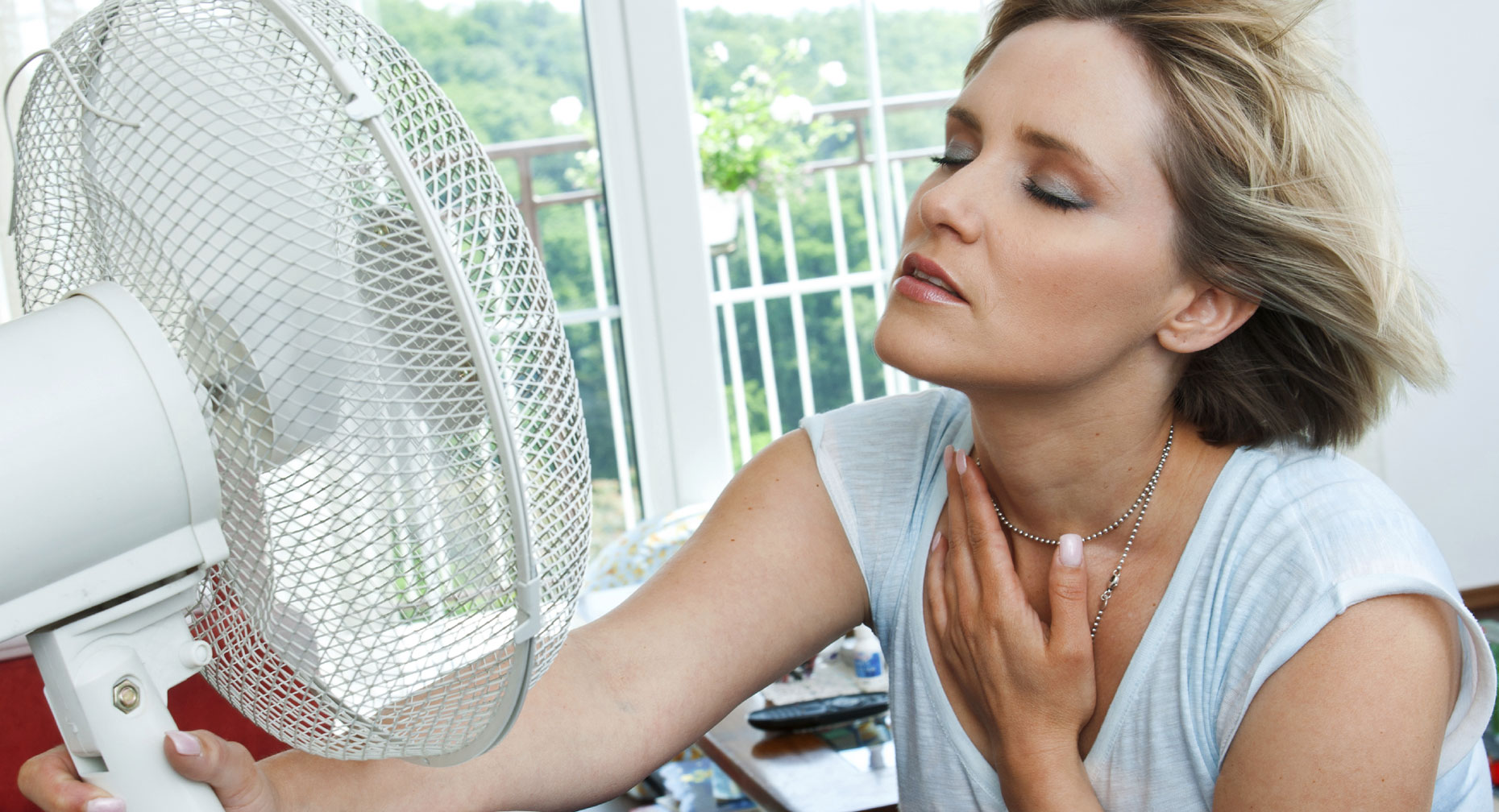Don’t Let Menopause Wreck Your Life!

Find Your Perfect Match
Answer a few questions and we'll provide you with a list of primary care providers that best fit your needs.
Are you one of those women breezing through menopause with little effort? Or are you finding nearly unbearable the disruption to your life caused by hot flashes, sleeplessness, and other symptoms? In either case, you’re probably learning that menopause can impact your physical state, your mental health and your sexual pleasure.
Be sure to discuss your concerns about your body’s response to menopause with your doctor.
If you’re not enjoying life because menopause symptoms are bringing you down, here are some helpful tips to help you cope.
For Hot Flashes
- Dress in layers that you can remove when you feel a heat wave coming on.
- Use cotton sheets and bedding.
- If you’re still having periods, ask your doctor if you can take low-dose oral birth control to help with symptoms and prevent pregnancy.
- Avoid triggers, including spicy foods, alcohol, caffeine, stress or just being in a hot place.
- Ask your doctor about menopausal hormone therapy (MHT). This is the most effective treatment for symptoms like hot flashes and night sweats.
- Also ask about other, non-hormonal prescription medications, such as antidepressants.
- Keep a fan nearby.
- Keep a glass of cold water by your bed.
- Take slow, deep breaths when a hot flash begins to surge.
For Memory Problems
- Be physically active.
- Get plenty of sleep.
- Talk to your doctor about mental exercises you can do.
For Mood Swings
- Avoid taking on too much so you don’t become overwhelmed.
- Look for a support group for women with similar experiences.
- Talk to your doctor if you are concerned about depression and feel the mood swings are beyond what you can manage.
- Try yoga, meditation and other healthy means of easing stress.
- Be physically active.
- Get plenty of sleep.
- Using MHT for other menopause symptoms – such as hot flashes – can help improve your mood swings.
For Problems Sleeping
- Avoid large meals and working right before bed.
- Avoid napping during the day.
- Be physically active, but avoid exercising too close to bedtime.
- Don’t drink alcohol close to bedtime, and avoid caffeine after noon.
- Drink something warm before bed, such as warm milk or warm caffeine-free tea.
- Go to bed at the same time every night.
- If hot flashes are keeping you up, read the tips (above) on managing them.
- If you wake up and can’t get back to sleep, get up and do something you find relaxing until you feel tired again.
- Keep the bedroom dark, quiet and cool.
For Vaginal Dryness and Painful Intercourse
- Try a water-based, over-the-counter vaginal lubricant to help make sexual intercourse more comfortable.
- Ask your health care provider about prescription estrogen creams for the vagina.
- Avoid products that irritate your vagina, like bubble bath, strong soaps and douches.
- Avoid allergy and cold medicines, if possible, because they can cause vaginal dryness.
- Have sex more often to increase blood flow to your vagina and keep tissues healthy.
- Allow time to become aroused during sex, as moisture from being aroused protects tissues.
- Avoid sex if you have any vaginal irritation.
For Lack of Sexual Desire
- Get treated for any medical problems, as your overall health can affect your sexual health.
- Avoid drugs and alcohol, which can slow down how your body responds.
- Practice pelvic floor exercises, like Kegels, that can increase blood flow to the vagina and strengthen the muscles involved in orgasm.
- Talk with your partner about your sexual changes, including:
- What feels good and what doesn't
- Times that you may feel more relaxed
- Which positions are more comfortable
- Whether you need more time to get aroused than you used to
- Concerns you have about your appearance
- Ways to enjoy physical connection other than intercourse, like massage
Be sure to discuss your concerns about your body’s response to menopause with your doctor. He or she will be able to assess your situation and offer you good advice for living well through menopause.
Find Your Perfect Match
Answer a few questions and we'll provide you with a list of primary care providers that best fit your needs.
Source: Menopause: Knowing How to Tackle the Changes, Premier Health Specialists; Office of Women’s Health, U.S. Department of Health and Human Services




